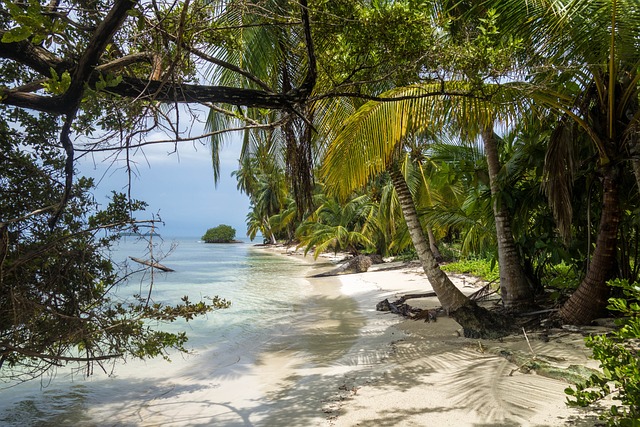
Top 25 Eco-Friendly Destinations around the world
Explore the world's top 25 eco-friendly destinations that blend stunning natural beauty with sustainable practices, making them ideal choices for eco-conscious travelers. From lush rainforests to pristine beaches and vibrant cities, these destinations prioritize environmental conservation and responsible tourism.
-
Costa Rica: Known for its rich biodiversity and commitment to sustainability, Costa Rica offers eco-lodges and eco-tours amidst stunning national parks like Manuel Antonio and Monteverde Cloud Forest.
-
Norway: Embrace eco-friendly living in Norway's fjords and sustainable cities like Oslo, which aims to be carbon neutral by 2030, while enjoying outdoor adventures in its pristine landscapes.
-
New Zealand: With its renewable energy initiatives and vast conservation efforts, New Zealand invites travelers to explore its green spaces, from Fiordland National Park to the geothermal wonders of Rotorua.
-
Bhutan: This carbon-negative kingdom promotes low-impact tourism, with policies that prioritize environmental protection and cultural preservation in its breathtaking Himalayan landscapes.
-
Sweden: Experience sustainable cities like Stockholm and eco-friendly accommodations nestled in Sweden's untouched wilderness, perfect for hiking, wildlife spotting, and Northern Lights viewing.
-
Ecuador: From the Galapagos Islands to the Amazon rainforest, Ecuador offers eco-conscious travelers diverse ecosystems and community-based tourism initiatives that support local conservation efforts.
-
Iceland: Known for its geothermal energy and commitment to renewable resources, Iceland showcases dramatic landscapes, including waterfalls, glaciers, and volcanic terrain accessible through eco-friendly tours.
-
Australia: Explore the Great Barrier Reef, ancient rainforests of Queensland, and eco-resorts in Tasmania, while supporting initiatives for wildlife conservation and sustainable tourism practices.
-
Finland: Discover Finland's pristine wilderness through sustainable activities like husky sledding and Northern Lights tours, alongside eco-friendly accommodations that emphasize energy efficiency and local cuisine.
-
Chile: With its diverse landscapes from the Atacama Desert to Patagonia, Chile promotes eco-tourism initiatives that focus on preserving its natural wonders and supporting local communities.
-
Netherlands: Experience eco-friendly cycling tours in Amsterdam and sustainable practices in cities like Rotterdam and Utrecht, known for their green initiatives and innovative urban planning.
-
Japan: Discover Japan's commitment to eco-tourism through traditional ryokans, sustainable agriculture practices, and national parks like Fuji-Hakone-Izu, offering serene landscapes and cultural experiences.
-
Botswana: Experience sustainable safaris in Botswana's Okavango Delta and Chobe National Park, where eco-lodges and community-based tourism initiatives support wildlife conservation and local livelihoods.
-
Scotland: Explore Scotland's rugged landscapes, from the Highlands to the Isle of Skye, and stay in eco-friendly accommodations that showcase the country's commitment to renewable energy and conservation.
-
Slovenia: Discover Slovenia's pristine lakes, lush forests, and sustainable tourism practices in cities like Ljubljana, known for its green spaces, eco-hotels, and outdoor recreational opportunities.
-
Canada: Embrace Canada's vast wilderness and national parks, such as Banff and Jasper, with eco-friendly lodges and tours that highlight conservation efforts and indigenous cultural heritage.
-
Portugal: Enjoy Portugal's sustainable vineyards, coastal landscapes, and eco-friendly resorts in the Azores and Alentejo regions, emphasizing organic farming, renewable energy, and cultural preservation.
-
Madagascar: Immerse yourself in Madagascar's unique biodiversity and eco-tours that support conservation projects in its rainforests, marine reserves, and indigenous communities.
-
Costa Rica: Known for its rich biodiversity and commitment to sustainability, Costa Rica offers eco-lodges and eco-tours amidst stunning national parks like Manuel Antonio and Monteverde Cloud Forest.
-
Norway: Embrace eco-friendly living in Norway's fjords and sustainable cities like Oslo, which aims to be carbon neutral by 2030, while enjoying outdoor adventures in its pristine landscapes.
-
New Zealand: With its renewable energy initiatives and vast conservation efforts, New Zealand invites travelers to explore its green spaces, from Fiordland National Park to the geothermal wonders of Rotorua.
-
Bhutan: This carbon-negative kingdom promotes low-impact tourism, with policies that prioritize environmental protection and cultural preservation in its breathtaking Himalayan landscapes.
-
Sweden: Experience sustainable cities like Stockholm and eco-friendly accommodations nestled in Sweden's untouched wilderness, perfect for hiking, wildlife spotting, and Northern Lights viewing.
-
Ecuador: From the Galapagos Islands to the Amazon rainforest, Ecuador offers eco-conscious travelers diverse ecosystems and community-based tourism initiatives that support local conservation efforts.
-
Iceland: Known for its geothermal energy and commitment to renewable resources, Iceland showcases dramatic landscapes, including waterfalls, glaciers, and volcanic terrain accessible through eco-friendly tours.
Visiting eco-friendly destinations isn't just about enjoying beautiful landscapes; it's about making a positive impact on the planet and enhancing your travel experience. These destinations prioritize sustainable practices that benefit both the environment and local communities. By choosing to visit eco-friendly destinations, travelers can Support Conservation Efforts. Eco-friendly destinations often have stringent conservation measures in place to protect their natural resources, such as wildlife habitats, forests, and marine ecosystems. By visiting these places, travelers contribute directly to conservation efforts through tourism revenue, which funds initiatives like habitat restoration and wildlife protection programs.